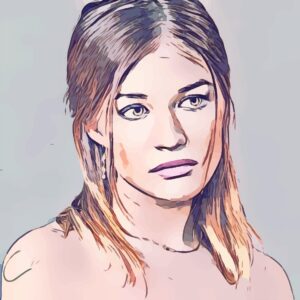BY LYDIA HOWELL
It is estimated that 25% to 50% of people killed by police were in a mental health crisis. Despite Mayor Frey’s promises, diverting such calls away from police remains disorganized. Since 2005, COPE (Community Outreach for Psychiatric Emergencies) responds 24/7. You can reach them at (612) 596-1223.
COVID-19 created uncertainty, social isolation and loss, with psychological impacts of anxiety, depression and post-traumatic stress disorder. Could stigma be replaced with seeing a spectrum of human experiences needing support?
Dr. Sherry Benton, Ph.D. and founder of TAO (Therapy Assistance Online) Connect, observes, “Most of us have some levels of well-being and some challenges. But the U. S. payment-created, one-size-fits-all model doesn’t meet a lot of people’s needs.”
Midwest Higher Education Compact is adding TAO Connect programs of exercises, mediation and journaling to college student counseling services, as have some workplaces. Online options are bridges while on waiting lists, reach rural areas without services, and being home-based, make finding transportation and child care unnecessary.
In 1935, Alcoholics Anonymous broke ground by recognizing healing can come through sharing experiences. Although not therapy, free support groups take on many life challenges: addiction; trauma (including sexual assault, child abuse and/or domestic violence); former prisoners’ re-entry; and diagnosed mental illness (bipolar disorder or long-term depression).
More than ever, therapists and support groups acknowledge race, gender, and sexual orientation and identities as key to addressing access for underserved communities, building contexts for healing. Women in the 1970s broke silences and built responses to sexual assault and intimate partner violence, making breakthroughs that continue rippling out today in what’s now called “trauma-informed care.” Contact the Sexual Violence Center at (612) 871-5111 (all genders and orientations welcome). Resources for domestic violence include the Tubman Center at (612) 825-0000. Black women can access culturally-specific support to address domestic violence at SAFE (612) 289-2169.
 “2020 was an unprecedented year, a perfect storm of collective distress. The election, COVID-19, the aftermath of George Floyd’s murder,” Dr. Willie Garrett, president of the Minnesota Association of Black Psychologists, told KARE 11 News. “People are totally overwhelmed. Children are struggling.” With only 2% of therapists being African American, there’s a looming crisis.
“2020 was an unprecedented year, a perfect storm of collective distress. The election, COVID-19, the aftermath of George Floyd’s murder,” Dr. Willie Garrett, president of the Minnesota Association of Black Psychologists, told KARE 11 News. “People are totally overwhelmed. Children are struggling.” With only 2% of therapists being African American, there’s a looming crisis.
“Community access to wellness and healing are what we need to keep protesting in the streets. Instead of just survival, we have a right to thrive. Continuing the marathon of our journey to justice, wellness is essential,” says facilitator Shaundelle Davis, who is working to solve those gaps by founding HerSiliency, with Black focus, at (612) 548-4085.
“Intergenerational trauma has been inflicted on our people from colonialism,” observes Marisa Miakonda Cummings, executive director of Minnesota Indian Women’s Resource Center (MIWRC). “We all have degrees of healing to do.” The Phillips neighborhood center offers a range of material resources and services, including “Healing Spaces,” which takes a holistic approach to addressing mental illness, addiction and surviving violence.
“Emphasis is on a woman’s relationship with creation, family, tribe, community and culture,” Cummings explains. “Natives look at our holistic selves: spirit, heart, mind, body. Each of us has original teachings that attend to all four components simultaneously. Our worldview is holistic and interconnected.” More information at www.miwrc.org or (612) 728-2000. Also contact the Minneapolis American Indian Center at www.maic.org or (612) 879-1700.
Spanish-speaking/Latino communities can access care at Un Pueblito Counseling, (612) 314-3210.
Rigid gender role expectations block many men from seeking therapy. Since 1975, the Twin Cities Men’s Center has expanded men’s wellness.
“Instead of multiple masculinities, the dominant culture has a single definition of masculinity, where men are told to ‘be self-sufficient’ and ‘don’t ask for help,’” says TCMC board member Andy Mikel. “We get lots of referrals from the mental health community. In the last 10 years, healing from trauma is more and more the model. Human reactions to trauma are fight, flight or freeze. The good news is that this can be healed relatively quickly.”
TCMC support groups include divorce/ending relationships, gay/bisexual men’s issues, sexual trauma/abuse, retirement and more. TCMC also hosts conferences, a wellness group and other affirmative events. Hennepin County refers men to TCMC Anger Management for Men, a 12-week class. A new follow-up class called “Reclaiming Your Fire,” inspired by Native American practices, starts in April. For more information on groups and events, contact www.tcmc.org or (612) 822-5892.
Her family history of depression sparked Dr. Sherry Benton to become a psychologist. “We don’t wait until it’s Type 2 diabetes or stage 4 cancer to pay attention! But, with mental health, we wait until people can’t function. Prevention works better.”
Besides public policy work, NAMI Minnesota (National Alliance on Mental Illness) offers diverse referrals and resources for individuals, families and youth, including free support groups in the metro area for families with a loved one struggling with mental illness. They also host a podcast called “Wellness in Color,” a series that explores perspectives on mental health to reshape the cultural language of mental illness. Check out their website at www.namimn.org or call 1-888-626-4435.
Other resources:
National Suicide Prevention Lifeline: 1-800-273-8255.
Minnesota Warmline: Peer support from someone who’s also living with mental illness, (651) 288-0400.
180 Degrees, serving Minnesota youth and adults: 180degrees.org, (651) 968-8908.
Lydia Howell is an independent Minneapolis journalist, activist and winner of a Premack Award For Public Interest Journalism.






















